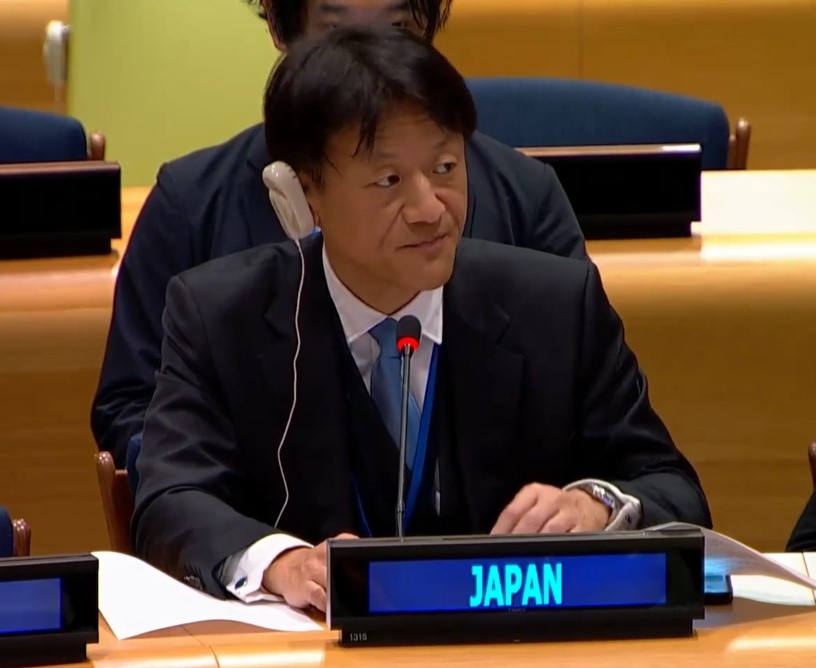AIに関する安保理アリア会合における入谷貴之公使ステートメント
令和5年12月19日

Mr. Chairs,
I would like to extend my gratitude to the Permanent Missions of the United Arab Emirates and Albania for successfully convening this important meeting.
Today’s theme, Artificial Intelligence and its impact on hate speech, disinformation, and misinformation is timely of utmost significance for the Security Council.
My address will cover three points; firstly, the advantageous utilization of AI in conflict prevention and peacebuilding, secondly, the challenges posed by AI in ensuring information credibility, and thirdly, the imperative of adopting an inclusive approach.
First, we would like to emphasize that AI tools, when used correctly, hold immense potential to significantly contributing to sustainable development as well as the maintenance of international peace and security.
For example, the DPPA Innovation Cell has worked on AI-enabled digital dialogue with various people around the world. Their projects utilize Large Language Model technology to foster inclusive dialogues, including perspectives on Women, Peace, and Security. Japan is proud to support these efforts including financial assistance and encourages further international and UN collaboration in this transformative direction in conflict prevention and peacebuilding.
However, alongside these benefits, AI also confronts us with formidable challenges, especially in the spread of disinformation and misinformation. The potential exploitation of these technologies by malicious actors cannot be overlooked.
Thus, our second point concentrates on the urgency to ensure the credibility of information, in this generative AI era.
The credibility of information is a cornerstone of democracy and vital for the free and open international order based on the rule of law. The proliferation of disinformation is a common challenge in all countries that hinders people's political self-determination and threatens the autonomy of nations.
The swift advancement of generative AI technologies now poses significant risks to information authenticity, particularly concerning social media content. We acknowledge these challenges have profound impacts on the activities of UN Peacekeeping Operations. Japan has provided financial contribution to the DPO training project in countering dis- and mis-information to ensure the safety and security of peacekeepers.
In this vein, it is required to invest in research and development, such as in development and deployment of reliable content authentication and provenance mechanism, to overcome these technological hurdles. Equally important is the need to empower and educate individuals as a complementary solution.
Proceeding to our third point, the necessity of an inclusive approach is paramount.
Addressing these challenges requires a collective, international, and inclusive approach. Japan believes in the efficacy of engaging diverse actors in the positive use of AI and the necessity of multilateral efforts to safeguard information credibility. Capacity building, both in “hardware-side”, such as digital infrastructure and in “software-side”, education of individuals, is the key to building a resilient global society where no one left behind.
Japan believes the convening power of the UN can make a difference and bring together wisdom around the world. We will continue to constructively engage in discussions for the Summit of the Future next year and look forward to receiving valuable inputs from High-Level Advisory Body on Artificial Intelligence.
Japan stands ready to collaborate with all stakeholders, including private sector, academia, and civil society, to ensure a positive usage of AI towards a sustainable development and international peace and security.
I thank you.
